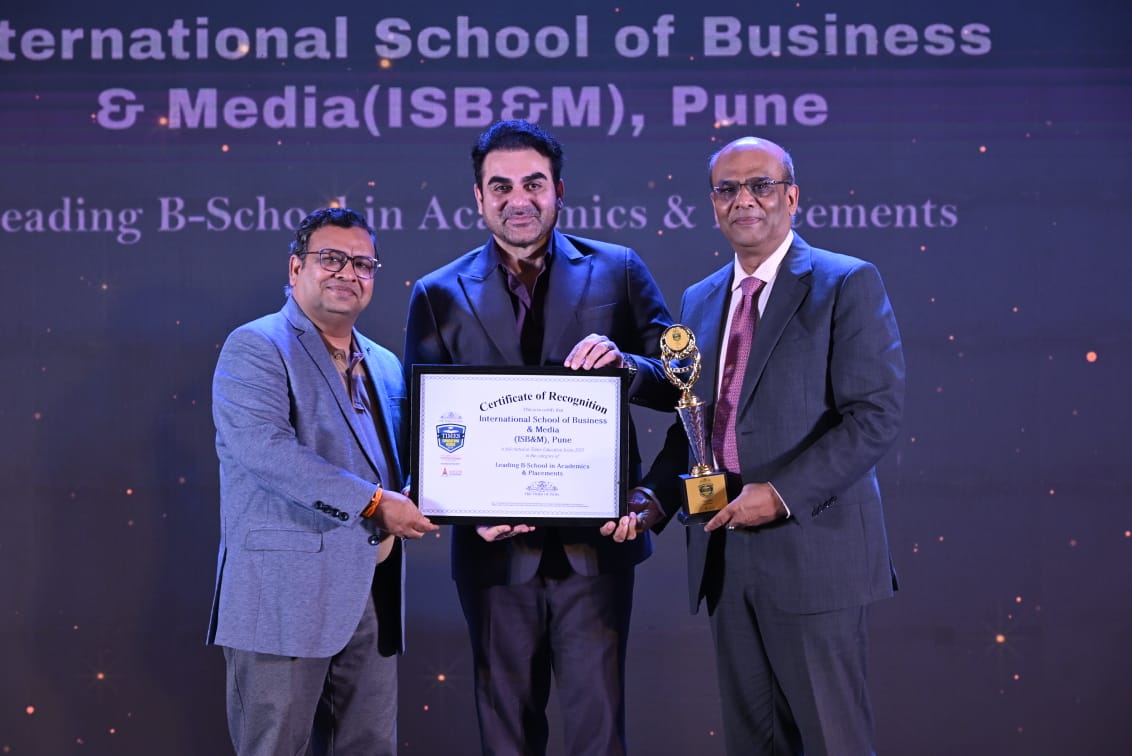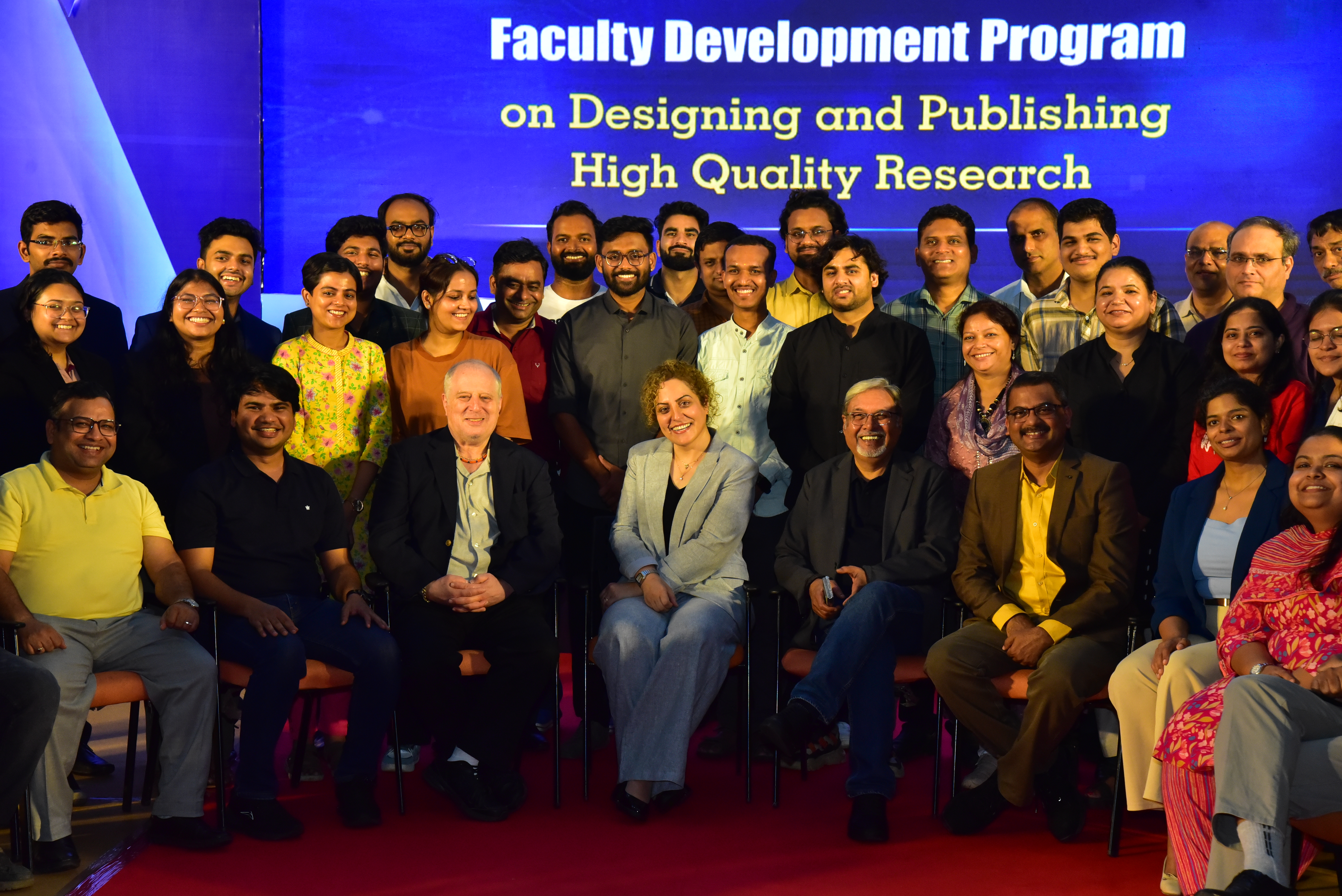
Revisiting Management Education to make it relevant to Industry requirements
The function of education is to teach one to think intensively and to think critically. Intelligence plus character - that is the goal of true education.
- Martin Luther King, Jr.
The quote is equally relevant for Management Education. Words, intensively and critically coupled with character differentiates the Leaders and Managers for ordinary mortals. The ethics part of it is more pertinent in the wake of many corporate scams.
Present state of Management education in India except few islands of excellence is quite alarming. Management education that is taught in many institutes is quite outdated and have no relevance to the present day requirements. Business landscape has transformed beyond recognition and corporates are trying very hard to cope-up with turbulent winds of change, volatility and uncertainty. Fastest growing economy requires robust supply of high caliber management professionals. There is not much of an effort to update the curricula for the present day requirements. There is a great urgency to relook at management education as a whole from every perspective and make an effort to ensure the relevance to present day requirements.
There are many reasons for the low standards of management education and some of them are as follows.
Structure of the management Education: There no uniformity in type of business schools or business education in our country. Various types of business schools are
· Institutes of National importance (IIMs)
· University departments
· Colleges affiliated to Universities.
· Autonomous institutions
· AICTE affiliated institutes
· Distance/correspondence institutions
· Unaffiliated institutions
The level of education in above institutes varies dramatically from useless to outstanding. Large number of management institutes are skewed to lower level. Most of the management graduates comes out schools are unemployable. Curricula in most of these institutes is quite outdated and have no relevance to the business requirements of present. Revision of curricula periodically is quite rare and is confined to very few institutes of national importance. Management education become commerce. They commercialized the education to such an extent that they are raking in millions. There are no set of standards for management education. AICTE recognition is not very difficult to obtain.
India boasts of highest number of higher educational institutes in the world, an astounding 33,723 according to EY analysis and second largest number of enrolments in higher educations at almost 27 million, second only to china which is at 33 million. Yet, it is estimated that almost 75% of these graduates are unemployable. Graduate employability at lower levels – clerical and secretarial jobs is at 25%, for cerebral jobs like Accounting and content development it is below 5%. Today no institutes of higher education from India figures in Global Top 200 rankings, even china has two. Will India ever realize demographic dividend? Perhaps not in near future. In India we have around 4000 institutions that impart management educations. 90% of the graduates are not placed and unemployable. Their standards varies dramatically.
Teaching methodology: one of the banes of management education in India is that great emphasis on theory and not on practice. Interaction with the industry is quite limited except for summer projects and guest lectures. Many business schools doesn’t use case study methods, videos and other relevant audio/video material. Discussion and discourse in class is very limited. Still the students look for single solutions for management problems instead of finding alternatives. Reading is limited to class notes or presentations. Students have neither aptitude nor attitude to read extensively on particular chapter. Intellectual capability and reading habits of faculty is quite limited. Faculty are also not devoid of blame. Most of the business schools and faculty have the notion that business school education as an extension of undergraduate course, where in you need to complete syllabus. Business education require students to explore, think and come out with alternatives. It’s a moot point that how many business schools really make their students think, explore and come out with their own view point. Moreover faculty feels that students are to be told and taught than to learn with active collaboration. Faculty knowledge is also quite outdated as they do not try to enhance their knowledge nor institutes for which they are working send them for Faculty development programmes. Lack of industry interface also make them unware of what is happening in the business world.
Interface with Industry: Except a handful of business schools, none of them have any interface or collaboration with the industry. Their interaction with the industry is limited to sending students for summer placement and inviting Industry people for some guest lectures. This is the main reason for the business schools continuing with outdated syllabus. Unless business school keep continuous contact with the industry, they will not be able to understand what is happening in the industry and what are challenges faced by industry. Industry also should interact with business schools and express their expectations in clear terms. Ultimately it is industry that suffers if they do not have the right supply of talent. Local industry chambers and business school should be interacting and business school should take initiative to talk to industry and understand their requirements so that they can adjust the curriculum to meet the requirement of the industry.
Institutional Mechanism: There is no Institution mechanism. Institutional mechanism should at two levels
· Academic level: Admissions/syllabus/standards/accreditations
· Industry interface
There should only one common admission test like CAT for all business schools admissions akin to NEET. Depending on the reputations of the business schools percentiles vary. There should be some minimum criteria or score like 50/60 percentile for admission to any business school. There should be institutional mechanism to review business management education (syllabus) periodically. In view of the absence of such mechanism, business schools continue with the outdated syllabus. There should be uniformity of syllabus in terms core subjects and this is must for every business school to teach. Business schools should have the liberty to teach more core subjects if they wish to. Electives and other things can be left to the individual business schools. The content and rigor should be same for every business school otherwise as we know that what some business schools dole out is varied from outright irrelevant to very relevant. There should be strict monitoring of mushrooming of business schools. The questionable accreditation of the institutions and egregious practices such as capitation fees flourish with impunity. As a result education system suffers from a vicious cycle of poor quality and it is being compounded by the increasing proclivity of the central and state governments to make politically motivated interventions in curricula. There is should one body akin to The Association to advance collegiate schools of business (AACSB) or Accreditation Council for Business Schools and Programs ( ACBSP ) whose accreditation is must to run the business school. This institutional mechanism should constitute reputed academicians, ministry of HRD people, captains of business and prominent professionals from other fields.
Research and Consultancy: Except handful of business schools, many do not do any type of consultancy or research or both. There are two reasons for the same – lack of opportunities and the other being many business schools doesn’t have that kind of environment. Faculty have no time, except to meet their teaching assignments and there is not motivation or incentives to do research. Many of the consultancy assignments go to top consultancy firms – Mckinsey, BCG, Accenture, Watson Wyatt, Mercer as the Industry doesn’t have faith in the capabilities of business schools and their faculty barring few. Many schools have no interface with Industry and they work in silos and teach management like any other subject. Unless there is robust collaboration with Industry, they will not be able teach students anything worthwhile. The initiative should come from both sides. If both industry and academia work in tandem there are great possibilities for faculty to do consultancy and research.
Shortage of Faculty: To improve educational standards, the role of teachers is paramount. In fact, in recent years it's become a truism that attracting good quality and well-qualified people into teaching is accepted as the essential prerequisite to raising educational standards. In Finland and Singapore, teachers are recruited from the most-qualified graduates, all with a second degree. Talent is scarce everywhere and more so in Education sector. Same is true for management education. We do not have very good faculty to teach in business school, Why business schools, everywhere. One of the reason for the same is the social attitude, social respect and remuneration of the faculty is something we all need to rethink. They are paid pea nuts. Except good business schools or UGC affiliated schools the remuneration paid is paltry at best. Even UGC scales are not much remunerative. For the kind of education, experience, caliber and expectations from the faculty the remuneration paid is quite paltry. Luxembourg pays highest salary to teachers in comparison to teachers of the world. The lower secondary teacher without experience is paid $79,000 and it goes up to $137,000 with experience. Teachers in Luxembourg earn more than 30% than any other teacher in the world. Switzerland, Germany, Austria and Canada pays approximately $65,000. What are we paying in our country? Even the management faculty is not paid anything on lines with what teachers are paid in some countries. We don’t give salaries to the teachers regularly apart from paltry amount. With such kind of environment what kind of motivation you expect from the faculty to excel? The respect corporate executives garners in comparison with faculty is quite different. According to 2013 Global Teachers Status Index, teachers have the highest status in comparison to professionals like doctors in China and Greece and lowest in Israel and Brazil. We all know where we stand in India. We have forgotten our great sayings like “Guru Devo bhava”. Bright people going to other vocations rather than to come to teaching line. Once it was great pride to be teacher but not any longer. Teaching is considered as the last option. The quality of the teachers is not up to mark, sometimes downright pathetic. Even though they have fancy degrees and doctorates, but their content and communication is not in tune with their education.
Management Education as Business: Most of the management educations become business. Every college with some affiliation or otherwise offer MBA/PGDM degree, cashing on the gullibility of students. It’s quite an irony that many of the students are unemployable and they do not have any basic knowledge of management. There are reports people with MBA degree are applying for peon post in Bihar and UP. Educations is recession proof industry and more so of management education. So much money is being collected in the name of it and it became wonderful business for many unscrupulous elements. Most of these institutions are managed by politicians or their cohorts. They discourage foreign universities or Management institutions to enter India as this will have an impact on their business.
What needs to be done?
1. There should be national debate on how to make management education relevant. There should be serious discussion about how to improve the rigor of management education and to weed out institutes which doesn’t have proper infrastructure, faculty and interface with the industry. It should take into consideration the requirement of the Industry for economic development. In fact we should strengthen our primary and secondary education otherwise the whole education system collapse. Government should allocate anything between 6-12% of total budget outlay to education.
2. There should be cooperation between Academicians and Industry captains. Industry should demand standards from the management education. In the process business schools should cooperate and facilitate interaction of students/faculty with industry captains. Industry should facilitate factory visits and ensure the management students should get good projects and learning opportunities during summer projects instead of using them as cheap labor.
3. The people from industry background should be absorbed in business schools, irrespective whether they have Ph.D or not. More than 10 years’ experience at senior level of management be treated as equal to the Ph.D. We know the standards of Ph.Ds. in our country. Universities should tighten their evaluation process and ensure that Ph.Ds. should be awarded to excellent thesis only.
4. There should be Institutional mechanism for control and monitoring of management education. It should be autonomous and should comprise of Academicians of repute, Management professionals and other reputed educationalists and social scientists. The syllabus should be revised periodically. Management syllabus should be comparable with best management schools of the world.
5. Instead of discouraging reputed foreign Universities, we should encourage the entry to into education system. Collaboration with Ivy League business schools, joint development of curriculum and student exchange programme will make our management institutes relevant. Government should encourage by providing direct or indirect incentives for such efforts.
Professor at International School of Business & Media
Published





